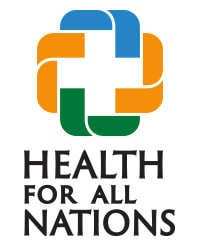|
Greetings once again from the ZealWithKnowledge blog at the Health for All Nations. With this installment we address the issue of using strategies that identify the type of situation we will be encountering when working in another culture. In their best seller “When Helping Hurts,” Corbett and Fikkert rightfully highlight the importance of knowing what type of situation we are working within. Is it a relief effort, (post tsunami Indonesia or post-earthquake Haiti for example) a recovery effort (they actually use the term rehabilitation) or a development situation? This is important for several reasons. It will change the type of team member we ask to participate (an ER doc is going to be more useful than a radiologist) and there will be a difference in the type of meds we arrange to be made available. But the most important factor may be our strategy for how we do things. In a relief effort we are doing all we can to save as many as we can and we will likely find ourselves in positions of leadership that are more in line with just getting done what needs to get done. Whereas in a development situation our approach will be entirely different. So our Statement 8 reads:
We will differentiate between relief, recovery and development efforts
This is obviously not an exhaustive list of activities at each level but you get the picture. I think we are very good at the relief level and probably with the recovery phase, however when it comes to the more long term development phase we have a lot of trouble. This is where issues related to culture come into effect and we have not too well over the years along these lines. Western culture is more interested in short term results and giving glowing reports about #’s of people treated and lives saved. But when it comes to reports related to achievements in the long term we are much less patient. If done right long term reports on transformation will have much more to do with what our local partner is accomplishing for their own community rather than what we as outsiders are doing for them. As always we welcome feedback. Mike and the Health for All Nations team.
0 Comments
Leave a Reply. |
AuthorThis is the blog for the Best Practices in Global Health Mission division of the Center for the Study of Health in Mission. It is a space for all who are interested in sharing opinions, ideas and best practices having to do with Christ centered health related ministry. Archives
April 2020
Categories |

© 2024 Health for All Nations All Rights Reserved In Partnership with Frontier Ventures and the Ralph D. Winter Launch Lab |
ABOUT The mission of Health for All Nations is to engage the global Christian community in the exploration and application of biblical revelation, scientific evidence, and cumulative experience as they relate to health and wholeness. Our mission includes assisting the global Christian church in fulfilling its mandate to promote health and healing among the nations. Learn More |
Proudly powered by Weebly


 RSS Feed
RSS Feed
